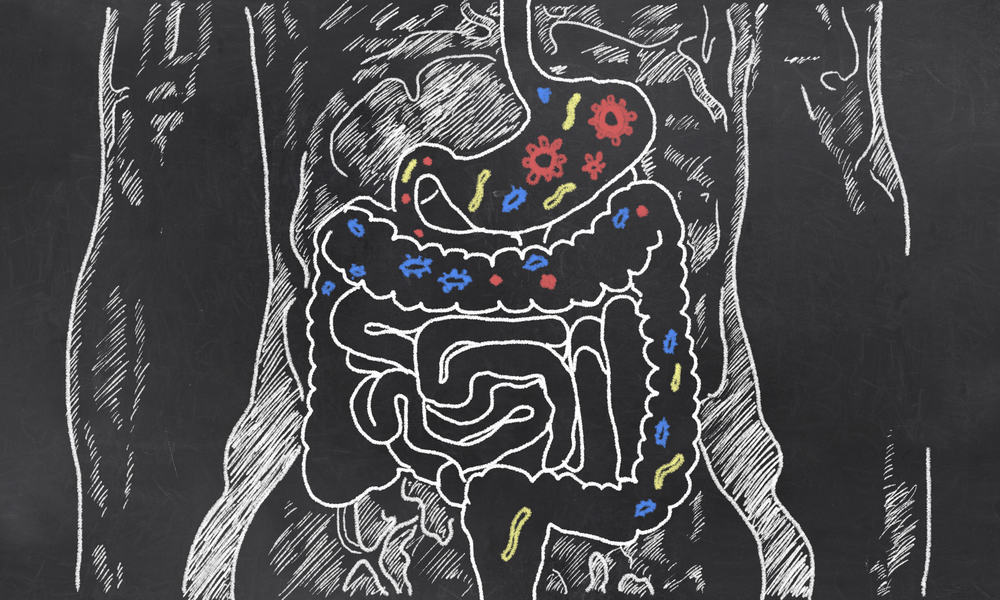Contents:
- Medical Video: (OLD VIDEO) Bacteria: The Good, The Bad, The Kinda Gross
- What is listeria infection or listeriosis?
- Probiotic bacteria reduce the ability of colonized Listeria monocytogenes
- Giving antibiotics can make it more susceptible to listeria infections
Medical Video: (OLD VIDEO) Bacteria: The Good, The Bad, The Kinda Gross
Ever heard of the hot news discussed about imported apples containing listeria bacteria? Yes, listeria or bacteria Listeria monocytogenes is a type of bacteria that should be watched out for. Because the bacteria can cause listeria infection (listeriosis) which easily attacks people with weak immune systems such as pregnant women, babies, the elderly, and cancer patients.
A study found that bacteria in your intestine hold an important key to preventing listeria infections. How to? Check out the full review below.
What is listeria infection or listeriosis?
Listeria infection or listeriosis is an infectious disease caused by bacteria Listeria monocytogenes. When you get a listeria infection, you may experience headaches, fever, diarrhea, muscle aches, and weakness. This infection can occur due to consumption of food that is easy and has been contaminated by bacteria such as soft cheese, raw meat, and milk.
For most adults, listeria bacteria that enter the body can be driven by the immune system. However, in some groups such as infants, pregnant women, cancer patients, and people with weak immune systems are very vulnerable to listeria infections. Because, once this listeria bacteria escapes from the digestive tract and spreads throughout the body, then this can cause septicemia (blood poisoning), meningitis, to the point of death.
Probiotic bacteria reduce the ability of colonized Listeria monocytogenes
A study from the Memorial Sloan Kettering Cancer Center in New York found four species of intestinal bacteria that can reduce bacterial growth Listeria monocytogenes. The four species are Clostridium saccharogumia, C. ramosum, C. hathewayi, and B. producta all of which belong to the Clostridiales family. These bacteria are good bacteria (probiotics) that exist naturally in your intestine.
The study began with testing probiotic bacteria in the laboratory to find out how these bacteria can reduce growth Listeria monocytogenes. Furthermore, probiotic bacteria are transferred to germ-free mice (without any microorganisms in them) and then bacteria are inserted Listeria monocytogenes. They found that the probiotic bacteria had the ability to remove antibacterial toxins that could break down colonization Listeria monocytogenes. This shows that rats avoid the risk of listeria infection.
The results of this discovery can be attributed to the high risk of listeria infection in pregnant women, infants, or people with a low immune system against the number of good bacteria in the intestine. In pregnant women in the third trimester - that is, in the highest susceptibility phase to listeria bacteria - they show a decrease in the bacteria Clostridiales species so that they are very vulnerable to listeria infection.
Meanwhile, reported by Science Daily, cancer patients have a thousand times more likely to get listeria infection. This is caused by the effects of chemotherapy drugs that can reduce the patient's immune system. However, researchers estimate natural bacteria that grow in the digestive tract can help reduce infections caused by Listeria monocytogenes.
Giving antibiotics can make it more susceptible to listeria infections
The presence of good bacteria in the intestine is reported to contribute to the prevention of listeria infections. However, these helper bacteria can be reduced in number due to the consumption of antibiotics. How can?
This theory is reinforced by the results of research that distinguishes probiotic reactions in rats given antibiotics, mice given chemotherapy drugs, and compared to mice that were given nothing. After the three rats were inserted into listeria bacteria, the researchers found that rats given antibiotics were more susceptible to listeria infections compared to other mice.
This is suspected because antibiotics can reduce the number of good bacteria and can encourage the ability of listeria bacteria to disrupt the digestive tract and reach the circulatory system. This disorder occurs continuously until the mice die. Meanwhile, mice given chemotherapy drugs also experienced increased susceptibility to listeria infections and were aggravated when given antibiotics.













